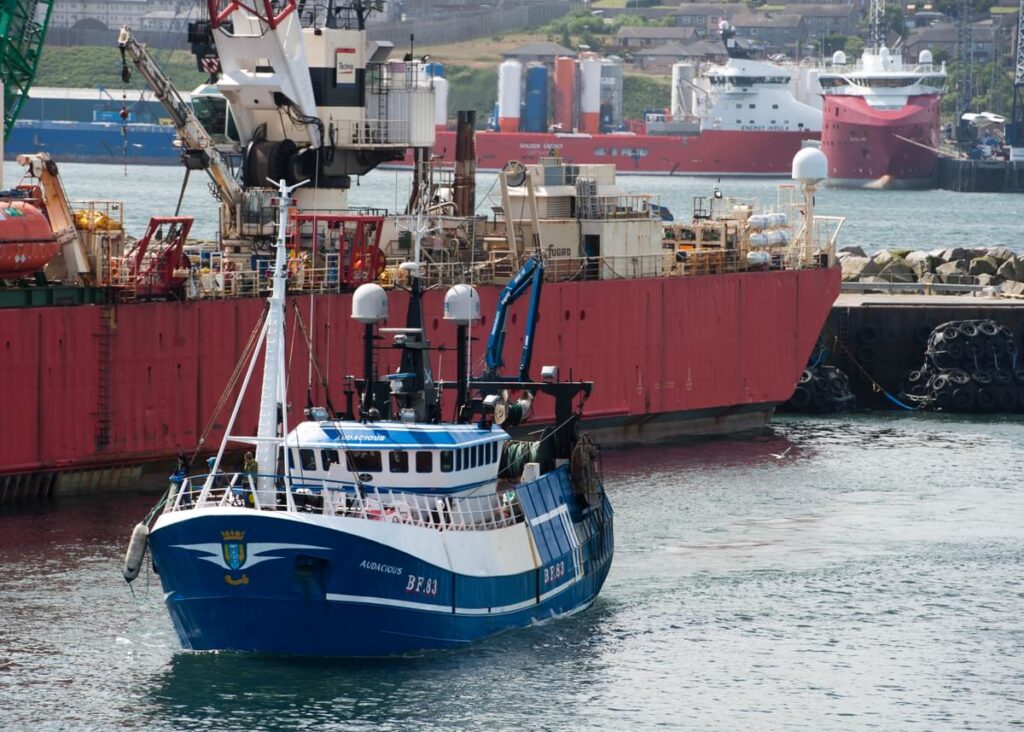- Home
- >
- Guide to seafood industry
- >
- Fishing industry
- >
- Fishing ports and markets
Fishing ports and markets


The UK fishing fleet landed 631,000,000 Kgs of fish and shellfish in 2021 in the UK and abroad.
How do we connect this array of wild caught seafood with the merchants and processors who need specific quantities of certain species for their processes and customers?
Port auction markets are at the heart of these ports.
The fish auction is where the fish is sold each day to merchants, wholesalers and processors who then export it, process it and/or sell it on to supermarkets, restaurants and independent shops.
How the fishing port and fish auction market work
Some fishing boats catch fish and shellfish on contract and sell some or all of their catch directly to a single customer. The vast majority of seafood landed in the UK is sold through a port auction market.
Whether that is a shout or Dutch/electronic auction, the principle is the same, to match up the sellers of fish with the buyers. Wild caught fish landings can be very variable, different species, sizes, qualities.
Often the buyers have little or no notice of what fish (or shellfish) are expected on the market that day, they may not know what the other buyers are after to meet their orders, so the whole business of bidding is highly skilful, intuitive and stressful.
Shout or Dutch?
A traditional shout market will see buyers competing with each other on the market floor, raising the bid price quickly until the final winning bid is accepted. The buyer will let the auctioneer know how many boxes they want at that price and any remaining boxes will go back up for auction.
A Dutch auction is a reducing bid auction. The price starts high and drops until a buyer steps in an accepts that price. Again they will indicate how many boxes they want to buy and any remaining boxes are put up for bidding again. Dutch auctions make use of an Auction Clock, and often these auctions are run online allowing bidders to bid without being in the market during the auction.
Fishing ports
While most fish auctions are based near to ports, many ports do not have an auction market and fish landings are then transported overland for sale. So why have fishing ports without markets?
Fishing ports provide many other valuable services for fishermen. The provide a secure harbour for vessels, opportunities to load stores (food, water, fuel, new gear etc) before each fishing trip. Ports (and harbours) are often conveniently located nearer to fishing grounds, particularly important for smaller fishing boats that operate short fishing trips.
All fishing boats have a port of registry, in effect their “home address” although they may well fish from another port for part or all of the fishing season.
